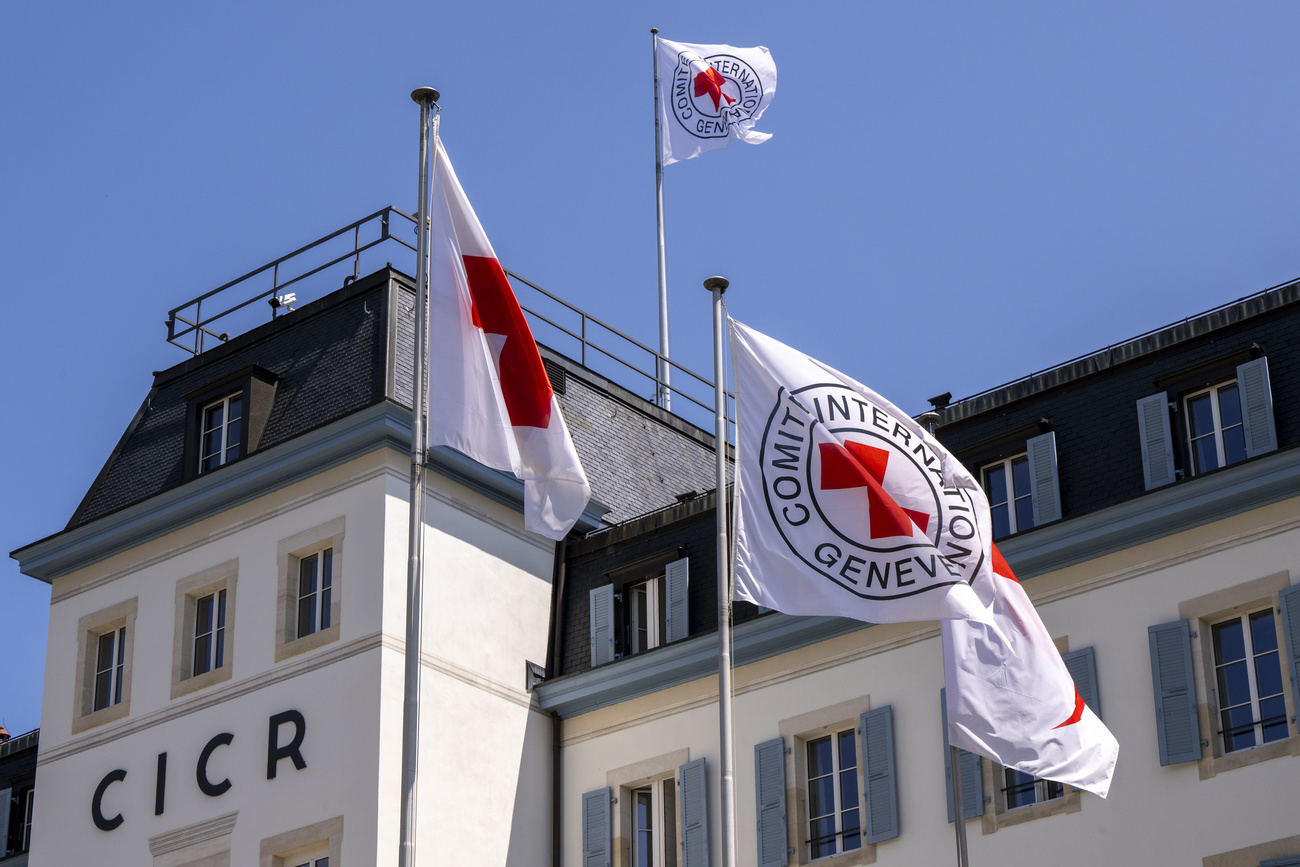
Red Cross gifted gold bars left on a Swiss train

The Lucerne Public Prosecutor's Office will hand over 3.7 kilos of gold to the International Committee of the Red Cross (ICRC).
Despite a thorough investigation, it has not been possible to determine who owned the 120 bars of gold found in October 2019 on a train from St. Gallen to Lucerne, the Lucerne public prosecutor’s office said on Friday. The gold is worth around CHF 200,000 ($226,000).
The ingots were in a white package bearing the words “IKRK Wertsendung” (“ICRC valuable consignment”). The Public Prosecutor’s Office assumes that the unidentified owner intended the gold for the ICRC.

More
Missing glass eye? Contact Swiss railways
Case closed
After a lengthy investigation, the authorities were unable to trace the owner or link the ingots to any crime.
“As the gold was in a parcel addressed to the ICRC, we can assume that the unknown owner wanted to give the gold to this organisation. The gold will therefore be handed over to the ICRC,” explained the Lucerne Public Prosecutor’s Office in a press release.
When questioned by AFP, the International Committee of the Red Cross initially said that it had been reassured about the origin of the gold following an in-depth police investigation, and was therefore able to accept the gift.
“We would like to express our gratitude for this generous contribution to the ICRC,” said a spokesperson, who was quick to point out that the organisation prefers to receive donations through more traditional channels.
“The donation received will make a significant contribution to funding the ICRC’s global operations, which are dedicated to protecting and assisting the most vulnerable people affected by war and violence,” the spokesperson said. The gold will be sold, he added.
Financial difficulties
This donation comes at a very opportune time for the ICRC, which is in a very difficult financial situation due to rising costs linked to inflation and a drop in the generosity of donors, particularly as a result of the very substantial funds devoted to helping Ukraine.
Faced with these difficulties, the ICRC has adopted a drastic cost-cutting plan worth several hundred million Swiss francs, including significant staff cuts.
Of the organisation’s 350 sites around the world, 26 will be closed and others will see their resources considerably reduced.
This news story has been written and carefully fact-checked by an external editorial team. At SWI swissinfo.ch we select the most relevant news for an international audience and use automatic translation tools such as DeepL to translate them into English. Providing you with automatically translated news gives us the time to write more in-depth articles. You can find them here.
If you want to know more about how we work, have a look here, and if you have feedback on this news story please write to english@swissinfo.ch.

In compliance with the JTI standards
More: SWI swissinfo.ch certified by the Journalism Trust Initiative




























You can find an overview of ongoing debates with our journalists here . Please join us!
If you want to start a conversation about a topic raised in this article or want to report factual errors, email us at english@swissinfo.ch.